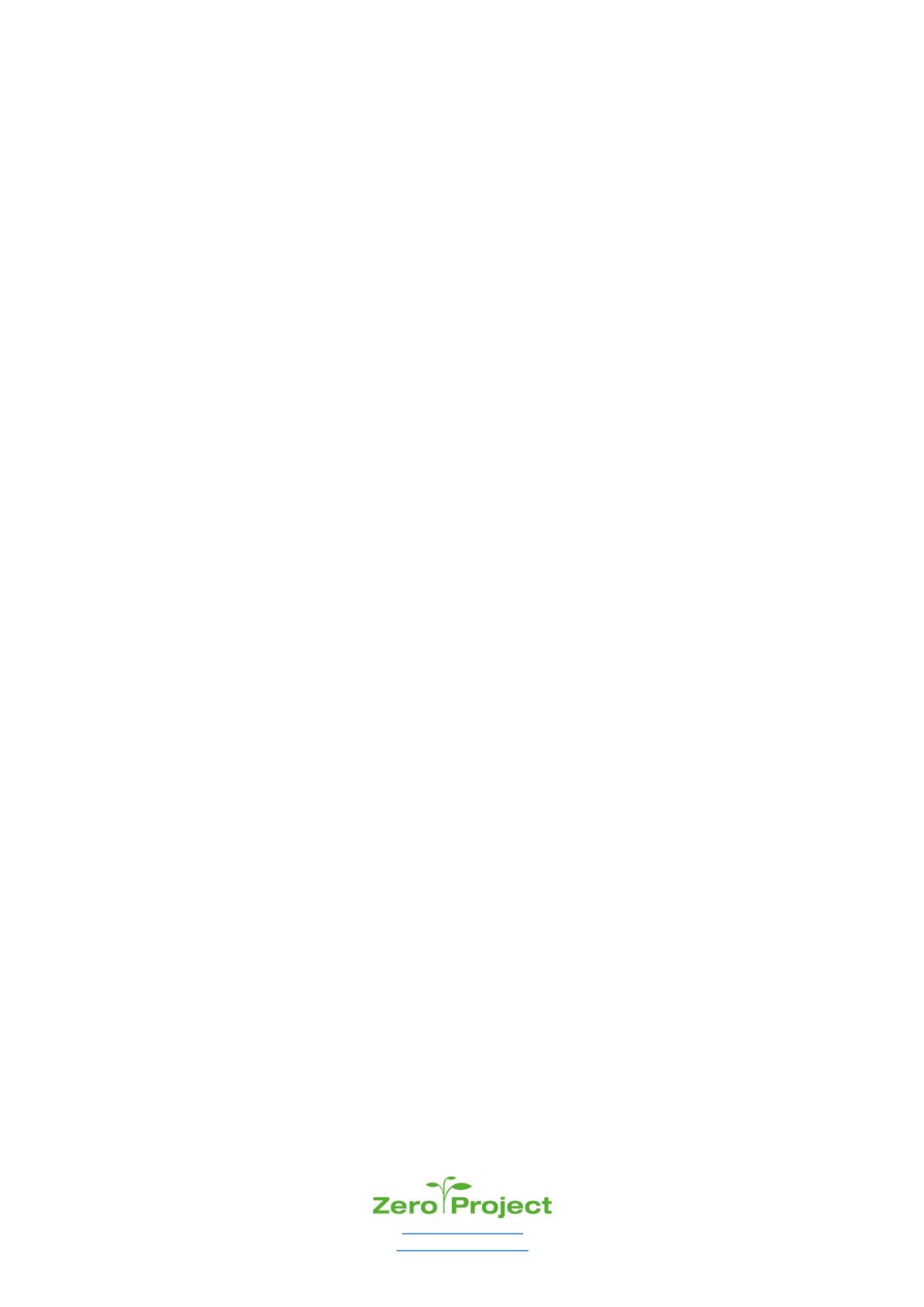
 www.zeroproject.org
office@zeroproject.org
www.zeroproject.org
office@zeroproject.org
257 – Ghana’s Inclusive Education Policy of 2013, Ghana
Responsible body:
Ministry of Education
Country of implementation:
Ghana
Beneficiaries targeted:
All children and students, including those with disabilities
S
UMMARY
Ghana’s Inclusive Education Policy of 2013 builds upon sections in the 1992 Constitution, the National Development
Agenda, the Education Strategic Plan and International Commitments. It is a policy framework that looks at a more
harmonized and strategic approach to planning and (financial) prioritization to roll out inclusive education activities on a
wider scale and reach all learners with special educational needs in the country.
C
ONTEXT
/P
ROBLEMS TARGETED
(W
ITH
A
DDITIONS FROM THE
Z
ERO
P
ROJECT
T
EAM
)
The development of the Inclusive Education policy in Ghana began 6 years ago with some pilot practice in three regions
including the Central, Greater Accra and Eastern Region. The pilot was based on best practices from around the world.
By the end of 2011, the Government of Ghana through the Special Education Division of Ghana Education Service had
implemented Inclusive Education pilot programmes in 529 schools. Activities include sensitization of communities and
key government officials, screening of schoolchildren, training of teachers on identification of children with special
educational needs (SEN) including those with disability, and managing children with disabilities in the classrooms. There
was however, a great need for a policy framework, which looks at a more harmonized and strategic approach to
planning and (financial) prioritization to roll out these activities on a wider scale and reach all learners with special
educational needs in the country. UNICEF started its support to Inclusive Education from 2012 under the new Country
Programme for 2012-2016. It was largely built on the evidence generated by the qualitative baseline study on
intellectual disabilities and from the results of the disability screening in 14 districts, which revealed that learners with
intellectual disabilities are excluded from regular education. The study also produced evidence on the need for changing
systems, creating mechanisms, equipping schools and changing perceptions. As a result, UNICEF, the Ghana Blind Union
and Inclusion Ghana commenced discussions using wider consultations mentioned above to develop a policy framework
for educational inclusion with personnel involving the Ghana Education Service and the Ministry of Education
(Curriculum and Research Development Division, Early Childhood Development, Guidance and Counseling, Girls
Education Unit, Ministries, Departments and Agencies). Other contributors included the Ministry of Health, the Ministry
of Gender, Children and Social Protection, the universities, National Council of Persons with Disability, the media, Ghana
Federation of the Disabled, Ghana National Education Coalition Campaign, the World Education, the International
Council for Education of People with Visual Impairment, civil society groups, faith-based organizations, parents, children
with and without disabilities, religious leaders, Queen mothers and Chiefs. The involvement of non-state actors such as
the Ghana Blind Union, the Ghana Federation of the Disabled, Inclusion Ghana, UNICEF, and the International Council
for Education of People with Visual Impairment in the various stages of the development of this policy cannot be over
emphasized. Together with the policy, an implementation plan, standards and guidelines have been developed. Whilst
















